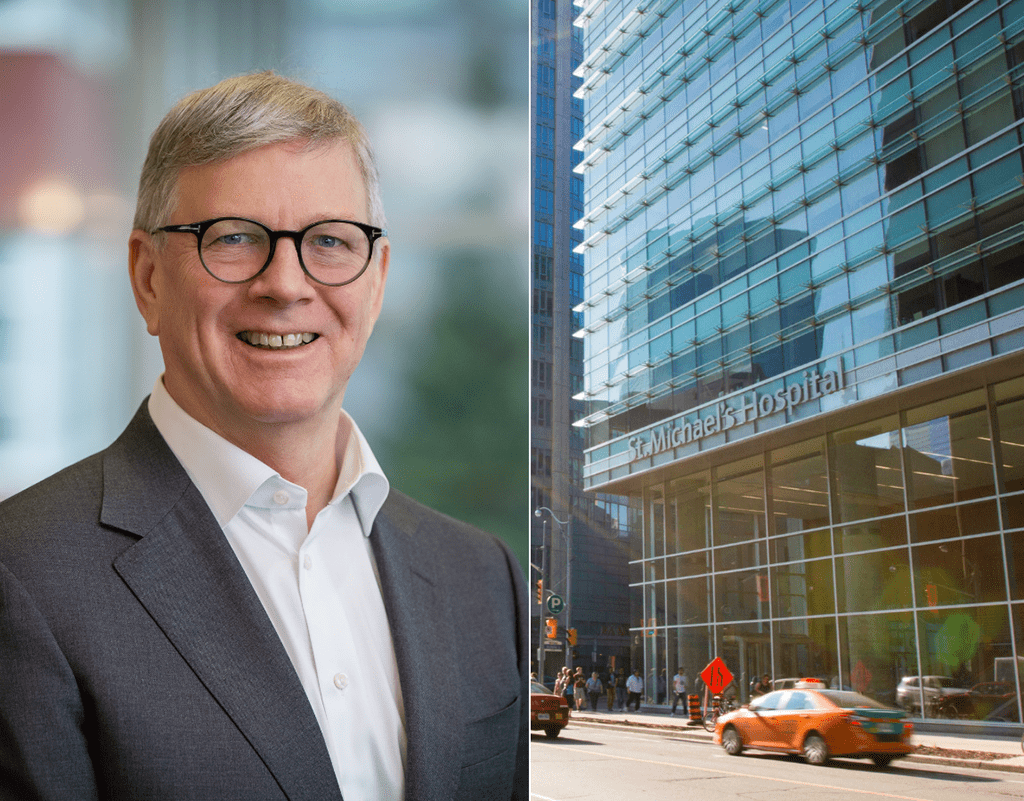Former Deputy Minister of Health Canada joins Unity Health Toronto as science policy advisor

Unity Health Toronto recently welcomed Stephen Lucas, former Deputy Minister of Health Canada, to the Research community as a science policy advisor. He joins Unity Health with four decades of public sector experience in economic, innovation, energy, environment, and health and social policy development.
We spoke with Lucas about what his new role is all about, what excites him about joining Unity Health, and why it’s important that research institutions work with external partners to achieve their goals.
Tell us about your new role as a science policy advisor.
I’ve long admired the work of St. Michael’s Hospital and Unity Health more broadly, and I was thrilled to hear from Dr. Sharon Straus and Dr. Ori Rotstein about the opportunity to be a science policy advisor.
In my role, I’ll be working with Unity Health leaders to define areas of focus, but a few that are emerging include working with the VITAL Project and the GEMINI Network team and its mission to strengthen the use of artificial intelligence (AI) and data to help deliver more timely quality care. I’ll also be developing an Innovation Hub at Unity Health to spur and accelerate work on innovative health solutions and implement those solutions at a system level. Finally, I’m excited to work with the Knowledge Translation program to synthesize research results and bring them to policymakers.
There are also exciting opportunities to work with the MAP Centre for Urban Health Solutions, in clinical research, and looking into how to deepen and broaden the scope of work with the private sector to see innovations translated for broader access.
Enjoying this story? Sign up for the Unity Health Toronto newsletter, a monthly update on the latest news, stories, patient voices and research emailed directly to subscribers.
What excites you about joining Unity Health Toronto?
I’d say three main things excite me. First, having spent five very intense years at Health Canada during the pandemic, I worked with several Unity Health scientists, including Dr. Fahad Razak and Dr. Muhammad Mamdani. That was a great experience, but at the federal government level, we are a few steps removed from direct healthcare delivery. So having the opportunity to spend time with and work with these people and others who are right on the healthcare front lines and driving innovation is a huge opportunity.
Second is the opportunity to mobilize health data and use innovative tools, including AI, to help bring better care, better health outcomes and more efficient delivery of care to Canadians. This is hugely important and transformative work, and being able to work with some of the world’s leaders on this task that I believe in passionately is a real privilege for me.
Third, because of Unity Health’s large scope of research and health assets and services provided — from primary to acute care, to rehabilitation and long-term care – we have a unique opportunity to see how these different system elements interact. Working with people who are responsible for these different functions and seeing how they can work more effectively together is something that really excites me.
Why is it important that health research institutions work with external partners?
I spent a large part of my career with the Government of Canada. I retired in May of 2024, and I’m now the CEO of Mitacs, an organization that supports grad student and post-doctoral talent working with both research partners and industry to solve problems. I’ve worked with researchers throughout my career, and I started my own career as a scientist – a geologist, with the goal of making new discoveries and translating those results for broader societal benefit.
I think having an external perspective can help researchers think about how their ideas and innovations can impact more broadly than just within Unity Health Toronto, and how they can be received by policymakers at the highest levels both nationally and internationally. It is an art and a science to be able to create greater awareness and receptivity to new research and innovation and support the ability to transfer these innovations, whether via policies that get implemented by government, by publishing research results and sharing them widely or by working with the private sector to help bring them to the commercial market.
I think I bring a perspective that is complementary to the exceptional work that Unity Health researchers do every day.
This interview has been edited and condensed. As told to Marlene Leung.
